Rise of the Compensating Introvert
This day has long been coming.
For years, we have structured our meetings, our organizations, and even how we work as staff to lean in on extrovert-friendly approaches. Board meetings arranged in large, hollow u-shaped seating designs instead of smaller group tables. Seeking senior staff leaders who are adept at schmoozing with many staff and monitoring the cultural health and stability of the team. Having networking events where meaningful relationships and connections should be made – the heart of the value of many associations – where, when you walk into the room, it feels like a huge crowd with everyone talking to someone. Putting the burden on the attendee to find a stranger to introduce themselves to.
And introverts? To succeed they have navigated the waters as compensating extroverts. Utilizing the tendencies and approaches that best fit the extrovert-friendly situation. This can be a huge draw of energy – exhausting them after acting as an extrovert for any extended period of time. How many times have you mentioned to a peer that they seem extroverted and they respond that they are actually an introvert but know how to act. That moment is exactly the world we have created.
Welcome to a new world.
As we now work and live in a time of isolation, I have had conversation after conversation with introverts who express an easier (not easy, but easier) time adjusting to this norm. They can focus on what needs to be accomplished, without the energy distraction of multitudes of others.
And extroverts? They are quickly being forced to learn how to be compensating introverts. How can they keep their energy up, without the community of peers and people that typically surround their days? In order to succeed in this environment, this new chapter requires skill sets and practices on both fronts – enabling people to thrive in isolation.
Yet – before we think our introvert friends have it made – I would bring you back to how you feel around 4pm each day after being on video for 8 hours of Zoom meetings and responding to endless messages on Slack. It is still exhausting to be front and center – your face full-on in the lens for hours on end.
Knowing we each are learning how to not just survive but thrive in this moment, here are some cultural thoughts to care for all the i/e-verts in our midst.
· Give moments of personalization as options, not as requirements. I have seen some really innovative ideas for sharing more about who you are during this time. Organizations asking those on a Zoom call to tell the story of one thing in their background. Others have instituted a “Cribs” association edition – where a different staff member gives a house tour on video each meeting. Still others are having “fun hat days” at staff meetings. Provide these as options and allow people to indicate before if they would like to participate since live peer pressure to share is not always welcome
· Make turning off video on occasion “ok”.Appearing on video for hours at a time can be exhausting. Consider making video optional on internal business meetings after 3:30 or 4:00. This makes it acceptable for those who have spent hours on video to still participate, but be able to do so without being visually ‘on.’
· Host a Virtual Happy Hour. In an effort to create social connection in a time of social distancing, many companies and organization have started virtual staff happy hours – a chance to just see each other without a work agenda. Creating space for connection and support is always positive. If these are regular (as in bi-weekly) and ongoing, make participation optional, encourage multitasking (making dinner, folding laundry, etc.) or let people know perfect attendance isn’t required. Thus taking away the stigma of having to be at all of them.
This moment doesn’t feel momentary – for many the radical change we are experiencing is overwhelming. Acknowledging and structuring staff interaction to accommodate the many i/e-verts among us can help everyone thrive in this time of change.
